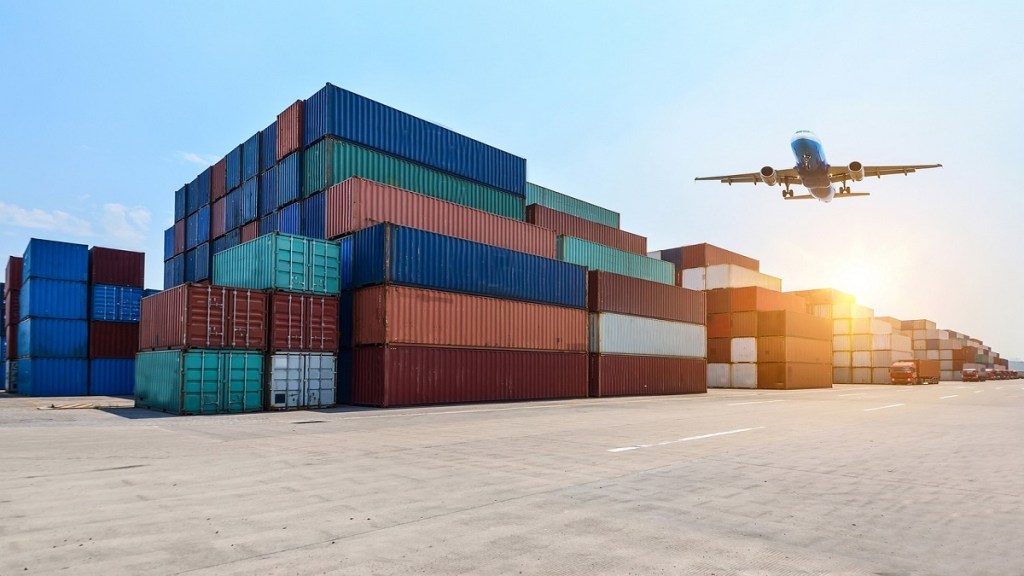By Ayesha Katgara
SME Imports: In the ever-evolving world of international trade, Indian small businesses are increasingly exploring opportunities beyond borders. However, the process of import customs clearance presents challenges that can be daunting for those new to the field. Extensive experience and specialized knowledge are crucial for providing effective import clearance solutions to small businesses. Here are some best practices that can empower small businesses to navigate import customs clearance with ease.
The Gateway: Importer Exporter Code (IEC)
The ambitious journey into international trade begins with the acquisition of the Importer Exporter Code (IEC) from the Directorate General of Foreign Trade (DGFT). This code is the identity of your business and a prerequisite for engaging in import-export activities. It acts as your passport to access global markets.
The art of valuation
Customs valuation is akin to strategically pricing your products in a global marketplace. It’s not just about numbers; it involves careful consideration that can impact your bottom line. Precise customs valuation is pivotal as it determines the duties and taxes applicable to your imported goods. Transparency in declaring the accurate value of your products is essential to avoid inconsistencies and ensure compliance.
Decoding Harmonized System of Nomenclature (HSN) Codes
Just as language facilitates effective communication, the HSN code enables the proper classification of goods. This code serves as a bridge, connecting your product to the corresponding customs duties and ensuring precise taxation. Referring to the Indian Customs Tariff is the key to unlocking the correct HSN code for your goods.
The orchestra of documentation
Visualize the customs clearance process as a symphony, with various documents playing harmoniously. The bill of entry, commercial invoice, packing list, airway bill, or bill of lading—these documents are the musical notes in the symphony of imports. Consistency, accuracy, and thoroughness in handling these documents ensure a seamless customs clearance process.
Capitalizing on preferential tariffs and FTAs
In the realm of imports, discounts extend beyond sale events through preferential tariffs and Free Trade Agreements (FTAs). These are your hidden strategies for optimizing costs. Conduct research to identify preferential agreements applicable to your goods; this can lead to substantial savings on duties and taxes, fostering your competitiveness in the global market.
Navigating the tax landscape
Taxes are an integral aspect of any business venture, including imports. Grasp the intricacies of customs duties, Goods and Services Tax (GST), and other relevant charges. Additionally, explore exemptions and concessions; some goods might qualify for reduced taxation or complete exemption.
Customs brokers: Your trusted guides
For small businesses, customs procedures can often resemble a labyrinth. Customs brokers are the guides who help navigate this complexity. These experts are your companions through the maze of forms, regulations, and requirements. A licensed customs broker acts as a knowledgeable guide, leading you smoothly through the journey of hassle-free customs clearance.
Unveiling the communication channel for smooth port and customs interaction
The bill of entry functions as your entry ticket to customs clearance. It’s a formal declaration of the goods you’re importing and a commitment to pay the applicable duties and taxes. This document must be submitted via the Indian Customs Electronic Data Interchange (EDI) system. EDI has been the communication channel between Indian Customs and importers. At every stage, right from filing the bill of entry to payment of duties, inspection and ensuring other compliance, the data is interchanged through the Customs EDI portal. Successfully passing these evaluations reflects your dedication to adhering to regulations, paving the way for the final clearance of your goods.
Staying ahead of regulatory changes by mastering record-keeping and compliance
Staying informed about alterations in regulations, tariff updates, and trade policies is crucial. Regular consultation with the Central Board of Indirect Taxes and Customs (CBIC) and the DGFT ensures your readiness to adapt to evolving customs landscapes. Maintaining meticulous records of bills of entry, invoices, shipping documents, and correspondence becomes a powerful shield against potential audits and inquiries.
Participative Government Agencies
Other than Customs, there are various authorities who play a pivotal role in allowing the imports. The importer should be aware of the respective agencies and their compliance requirements in order to experience a seamless clearance process.
Engaging a logistics provider for import customs management in India offers a plethora of advantages for small businesses. Partnering with these experts can streamline your import journey, making it more efficient and less daunting. Logistics providers often employ licensed customs brokers who are adept at navigating intricate customs regulations.
These experts handle complex paperwork, ensuring accuracy, compliance, and minimizing the risk of errors and delays. Then, there are end-to-end logistics service providers who offer customs clearance as one of their services. Therefore, partnering with an end-to-end logistics company provides small businesses with peace of mind. Knowing that experts are managing customs clearance allows business owners to focus on their core operations.
Import customs clearance, often viewed as a challenging hurdle, holds the potential to be a stepping stone for Indian small businesses towards global growth. By embracing these best practices, import customs clearance transforms from a daunting challenge into a promising opportunity—an opportunity to establish your presence in the international market and achieve excellence in cross-border trade.
Ayesha Katgara is the Head of Corporate Strategy at Jeena & Company. Views expressed are the author’s own.

